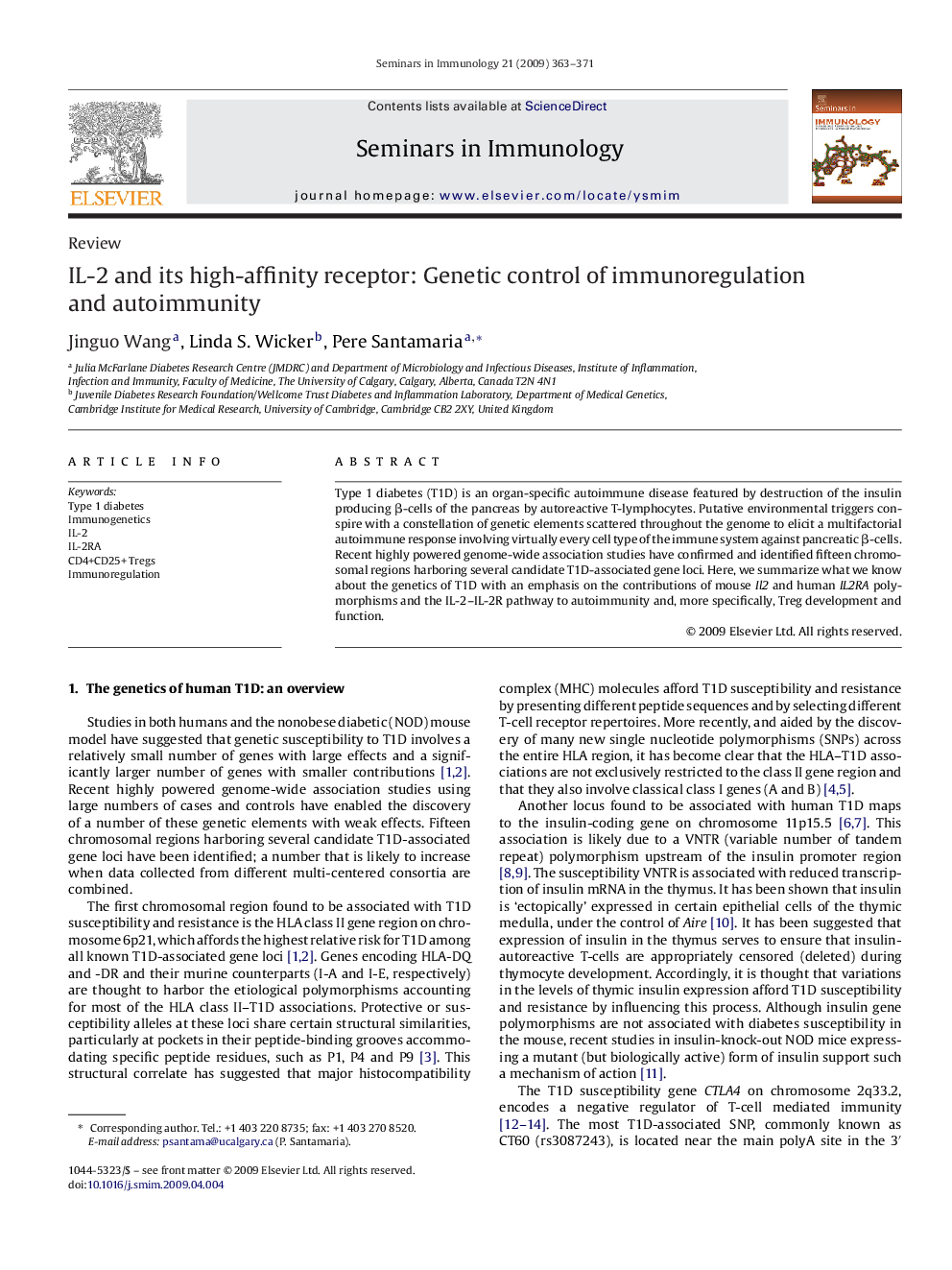| Article ID | Journal | Published Year | Pages | File Type |
|---|---|---|---|---|
| 3391465 | Seminars in Immunology | 2009 | 9 Pages |
Type 1 diabetes (T1D) is an organ-specific autoimmune disease featured by destruction of the insulin producing β-cells of the pancreas by autoreactive T-lymphocytes. Putative environmental triggers conspire with a constellation of genetic elements scattered throughout the genome to elicit a multifactorial autoimmune response involving virtually every cell type of the immune system against pancreatic β-cells. Recent highly powered genome-wide association studies have confirmed and identified fifteen chromosomal regions harboring several candidate T1D-associated gene loci. Here, we summarize what we know about the genetics of T1D with an emphasis on the contributions of mouse Il2 and human IL2RA polymorphisms and the IL-2–IL-2R pathway to autoimmunity and, more specifically, Treg development and function.
